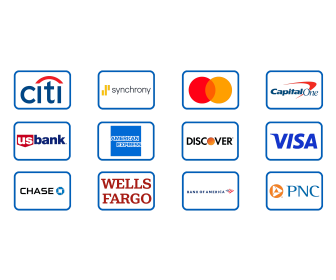How to Use Credit Cards Without Getting Into Debt
Credit cards are powerful financial tools — but only if you use them wisely. They can build credit, unlock rewards, and provide security for online purchases. Used carelessly, though, they can lead to spiraling debt and years of repayment stress. In this guide, you’ll learn how to use credit cards strategically in 2025 to build your financial future without falling into the debt trap.
1. Understand How Credit Cards Really Work
Every time you swipe or tap, you’re borrowing money — not spending your own. The issuer pays the merchant, and you owe them later. If you don’t pay the full balance by the due date, you’ll pay interest — often 20% or more. That’s how debt starts growing silently.
- Billing cycle: Usually 30 days. Purchases made during this period appear on your next statement.
- Grace period: The time between statement closing and due date — typically 21–25 days — when you can pay in full and avoid interest.
- Minimum payment: Paying only this keeps your account current but can take years to clear your balance.
2. Always Pay in Full and On Time
The single most important habit for debt-free credit card use is to pay your statement balance in full every month. Doing this means you’ll never pay a cent in interest. Set up autopay or reminders so you never miss a due date — one late payment can hurt your credit score for months.
- Tip: Enable “AutoPay for full balance” in your card app to automate good behavior.
- Avoid: Paying late, even by one day. Issuers can charge up to $40 in fees and report it to credit bureaus after 30 days.
3. Keep Utilization Low (Below 30%)
Your credit utilization ratio — the percentage of your available limit you’re using — plays a big role in your credit score. High utilization can signal risk, even if you pay on time. Aim to stay below 30%, and ideally under 10% for the best scores.
Example: If your total limit is $5,000, try to keep your reported balance below $1,500. Paying mid-cycle or multiple times per month helps keep utilization low when statements close.
4. Avoid Cash Advances and Balance Transfers (Unless Strategic)
Cash advances start accruing interest immediately — often with fees on top. Balance transfers can be useful to consolidate debt, but only if you have a clear payoff plan and can finish before the 0% promo period ends.
- Cash advances: Interest starts the day you withdraw, no grace period.
- Balance transfers: Helpful for debt payoff, but watch for transfer fees (usually 3–5%) and deadlines.
5. Track Spending and Set Clear Limits
Credit cards can make spending feel painless — until the bill arrives. Use your card’s app to categorize expenses and set alerts. Treat it like a debit card: never charge more than what’s already in your checking account.
- Use budgeting apps: Tools like Mint, Monarch, or YNAB sync your transactions automatically.
- Visualize your limit: Create a monthly spending cap and stick to it like a rent payment.
6. Use Rewards, Don’t Chase Them
Cash-back and travel rewards are great — but they’re not free money if you’re overspending to earn them. Rewards only have value when you avoid interest. Focus on maximizing rewards for purchases you already make, not just to collect points.
Example: If you earn 2% cash back but carry a balance at 20% APR, you lose far more in interest than you gain in rewards.
7. Build Credit for the Long Term
Credit cards influence your financial reputation. Length of credit history and payment consistency both matter. Keeping older cards open (especially no-fee ones) helps your score by extending your average account age.
- Starter cards: Use responsibly for a year or two, then upgrade or apply for a rewards card.
- Credit mix: Having both revolving (credit cards) and installment (loans) accounts builds a healthier profile.
Expert insight: Responsible credit card use is less about discipline and more about systems. Automate payments, track balances weekly, and treat your card like a convenience tool — not a loan.
Final Thoughts
Credit cards can either work for you or against you. The difference lies in how you manage them. Pay in full, keep balances low, and use technology to stay aware. Debt isn’t a sign of failure — it’s a signal to reset your system. Start building better habits today, and your future self will thank you.
Not financial advice. Terms, APRs, and credit card benefits vary by issuer and can change at any time. Always review the latest conditions before applying or making major financial decisions.
Not financial advice. Terms, APRs, and credit card benefits vary by issuer and can change at any time. Always review the latest conditions before applying or making major financial decisions.



